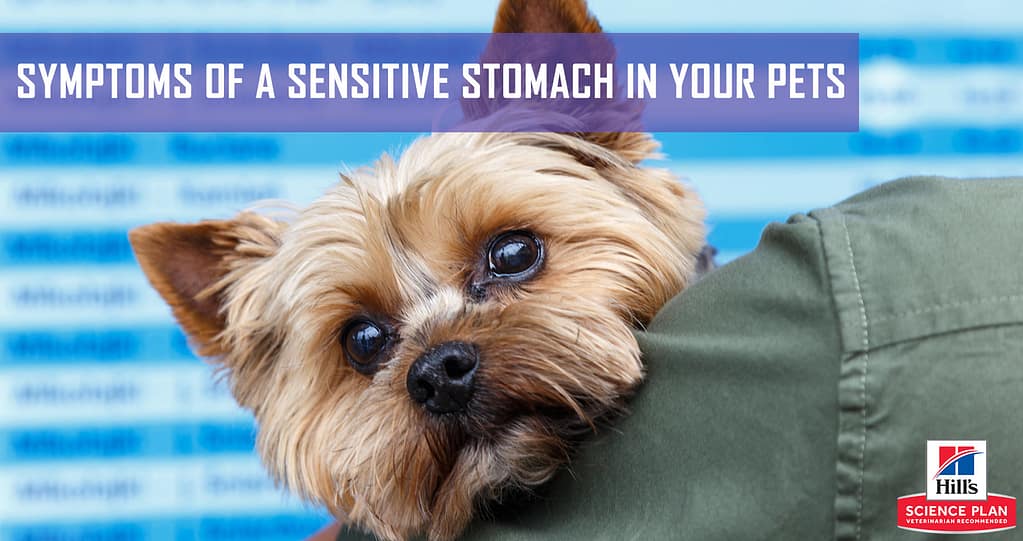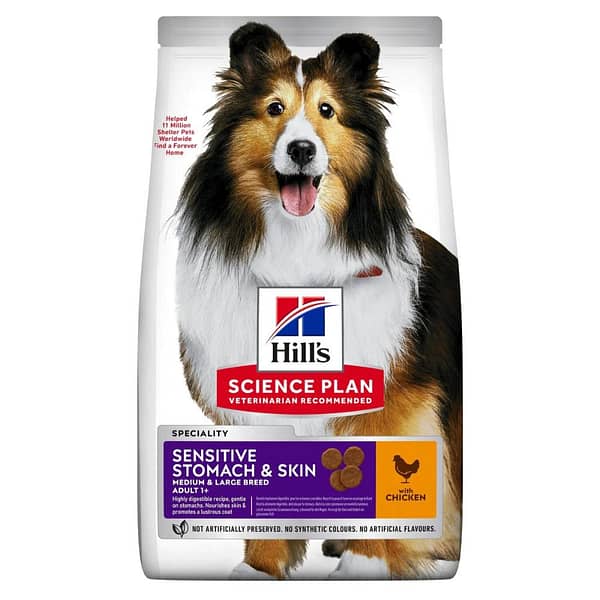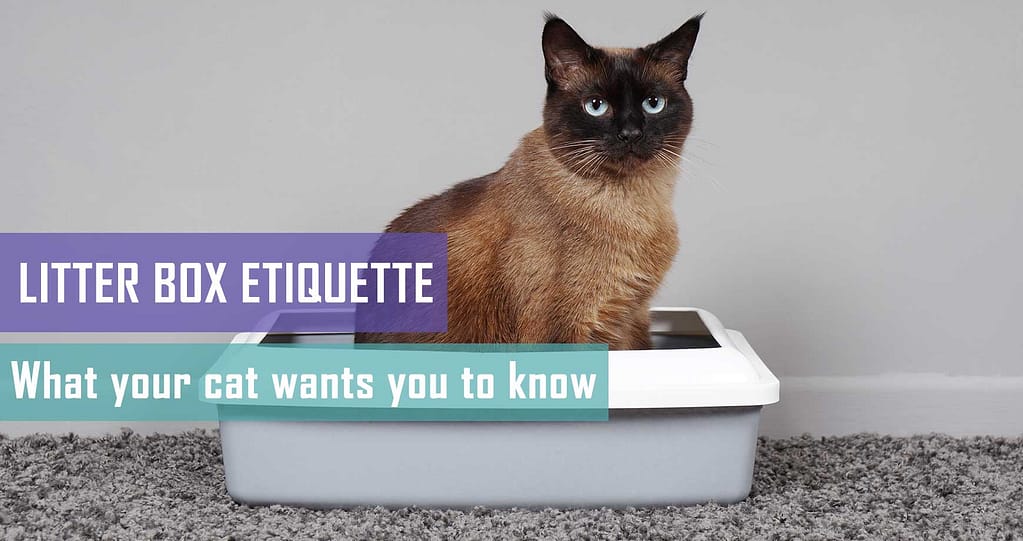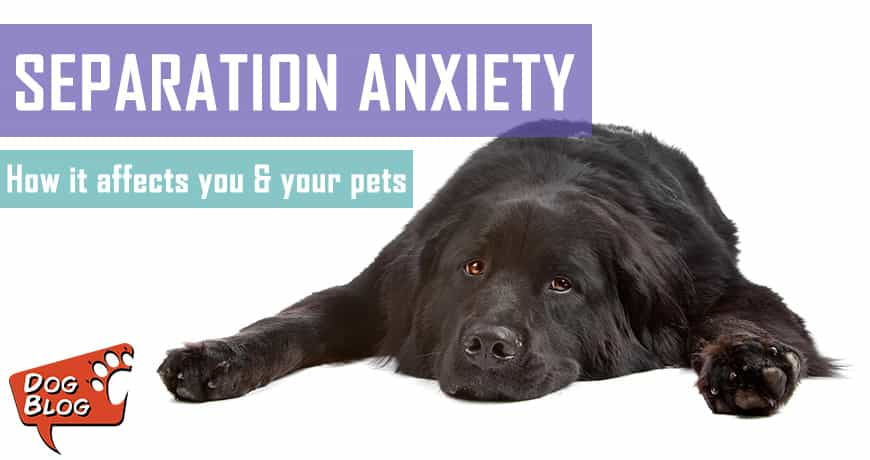[Sponsored post] Dogs and (to a lesser degree) cats make sense of their environment mostly with their mouths and noses, so it seems inevitable that something is going to end up in their stomachs, which shouldn’t be there. Interpreting this as a toxin or foreign object, their bodies will expel the offending material, either through vomiting, gas or diarrhoea. Sometimes dogs will eat grass and then vomit in order to help the substance pass. Some animals won’t have any symptoms whatsoever and their tough guts will pass the object or substance as though it were a gourmet meal. When there are symptoms, these bouts of stomach upset only last a day or two, then it’s back to relative normal.
However, sometimes pets are born with built-in food sensitivities or allergies. Their immune systems respond negatively to food and environmental allergens as if they were deadly, which leaves pet owners and vets scratching their heads.
Symptoms of sensitive tummies
Your dog or cat may have a sensitive stomach and it will show up in symptoms like:
- vomiting
- nausea/heavy salivation/licking lips
- lack of appetite
- diarrhoea/loose stools
- blood in the stools
- lots of farting
If these symptoms are intermittent, your pet may just have an upset stomach. Sporadic and infrequent incidents of digestive upset are fairly normal, but when your pet experiences chronic symptoms that aren’t brought on by any obvious toxin or substance (i.e. it’s not from something new that they ate), and result in weight loss, it’s time to make a vet appointment.
One way to tell if your pet has a sensitive stomach, food sensitivities or food allergies is that the symptoms will also show up on their skin. These symptoms include:
- red, itchy skin
- welts on the skin
- dry skin
- chronic nibbling and scratching
- hair loss
- scooting
Ruling out the causes
Sometimes these symptoms have a direct cause, like a parasitic infestation (worms), bacterial or fungal infection from something they ate, inflammatory bowel disease, pancreatitis, or even a bowel tumour (gastrinoma). The vet will perform blood tests, ask for a stool sample and may even order X-rays to rule out parasites, blockages, infections, tumours, etc. If any of these are determined as the cause of the digestive upset, they will be treated accordingly.
When it comes to sensitive tummies and food allergies, however, this is where things get a little more complicated.
Getting to the bottom of a sensitive tummy
There are a few things that can cause a sensitive stomach in a pet:
- they are born with it
- in dogs, some breeds – like Yorkies, Scottish terriers, Labradors, Irish setters – are more prone to sensitive stomachs
- grain sensitivity
- protein sensitivity
- age (old dogs and young puppies are more sensitive)
The symptoms of stomach upset are quite similar, no matter what the cause, so you and your vet will need to work on a process of elimination to figure out the cause, especially if there is a particular allergen at work. For instance, your pet may have a grain sensitivity, so you’ll need to cut out grains from your pet’s diet to see if the symptoms go away. If your pet has a protein sensitivity, you will need to feed your pet only one kind of protein at a time to figure out which one is the culprit – chicken, pork, beef, soy, etc.
If your pet simply can’t handle a variety of different foods, then it’s time to limit what they eat to see if their system settles down. This means no more table scraps and definitely no human sweets and snacks.
How to manage a pet with a sensitive tummy
The best solution for a sensitive stomach is high-quality, easily digestible food. If your dog is recovering from an acute bout of upset stomach, the best go-to in order to settle their digestion again is bland chicken and rice (that’s if they don’t have a sensitivity to poultry). The fewer ingredients and they higher quality they are, the easier it is for your pet’s digestive system to break down and make the nutrients available for absorption. Your sensitive pet’s food should also contain no artificial additives.
Ask your vet for a recommended pet diet that’s specially formulated for dogs or cats with a sensitive stomach. Hill’s Science Plan Sensitive Stomach & Skin dry dog food or dry cat food is a carefully balanced pet food that supports digestive health and contains prebiotic fibre to help manage your pet’s delicate gut microbiome. It’s also enriched with Omega-6 fatty acids and vitamin E to soothe the skin conditions that result from a sensitive stomach. Your pet’s health and happy tummy depend wholly on your co-operation with the vet in ensuring that your beloved furry or purry friend only eats what’s good for them. And the best place to start is with a pet food that is specially formulated to meet their individual needs.
Hill’s Science Plan Sensitive Stomach & Skin
-
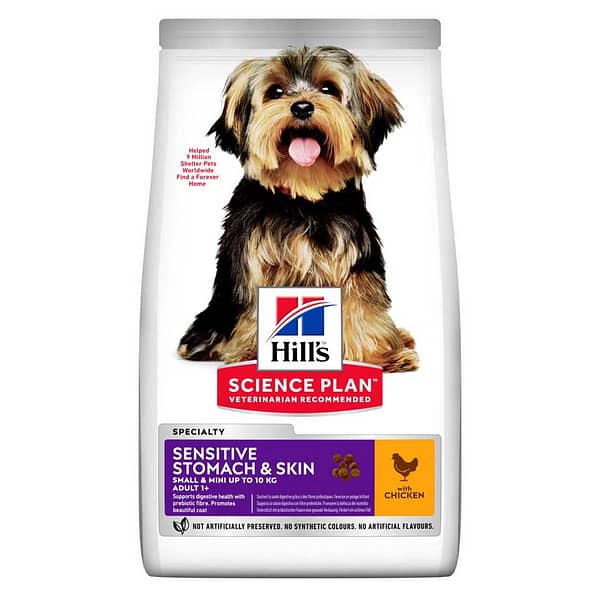 Hill’s Science Plan Adult Sensitive Stomach & Skin Small & Mini Dry Dog Food Chicken FlavourR275.00 – R999.00Rated 5.00 out of 5 based on 1 customer rating
Hill’s Science Plan Adult Sensitive Stomach & Skin Small & Mini Dry Dog Food Chicken FlavourR275.00 – R999.00Rated 5.00 out of 5 based on 1 customer rating -
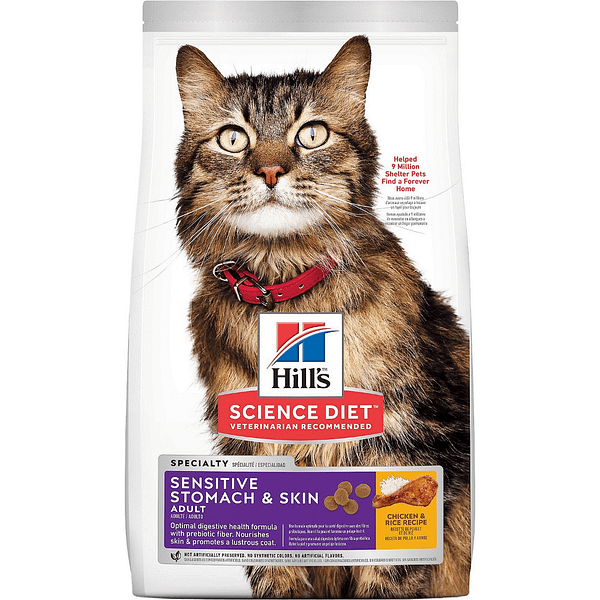 Hill’s Science Plan Adult Sensitive Stomach & Skin Dry Cat Food Chicken FlavourR339.00 – R1 249.00
Hill’s Science Plan Adult Sensitive Stomach & Skin Dry Cat Food Chicken FlavourR339.00 – R1 249.00 -
Hill’s Science Plan Adult Sensitive Stomach & Skin Medium and Large Dry Dog Food Chicken FlavourR465.00 – R1 615.00Rated 5.00 out of 5 based on 1 customer rating

